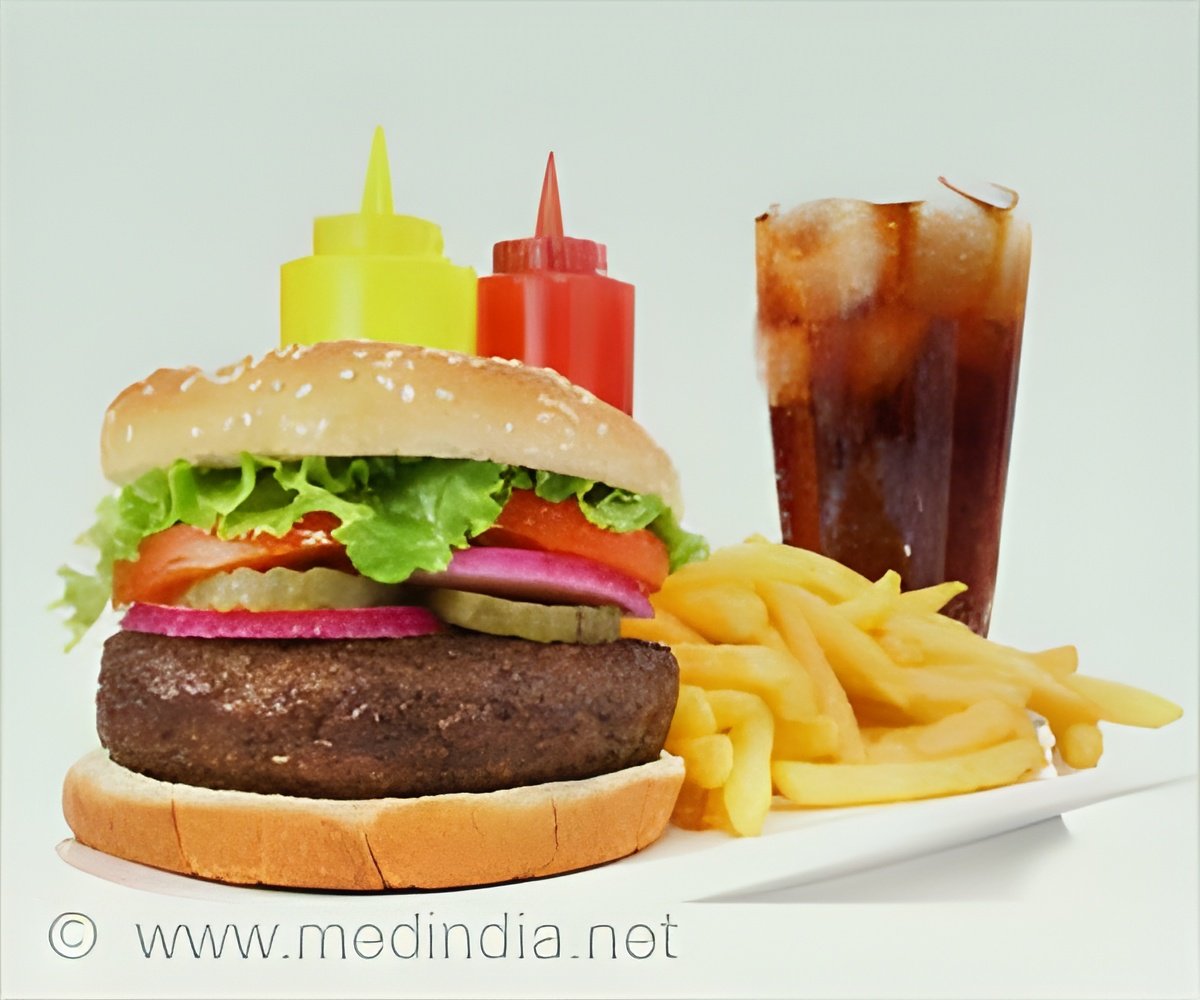
A study recently conducted by scientists at the University of Southern California (USC) on rats discovered the negative impact of a high-sugar, high-fat Western diet on memory function.
To understand more about these neurological effects, the study used a rat model which simulated a Western diet at the adolescent age, and induced long-lasting dysfunction in the Hippocampus (HPC).
The study proved that Memory impairment can still occur despite a healthy diet intervention, especially if individuals were exposed to a Western diet in early life (1✔ ✔Trusted Source
Western diet consumption impairs memory function via dysregulated hippocampus acetylcholine signaling
Advertisement
What is Western Diet?
Western Diet is a diet rich in saturated fats and sugars. It is generally linked to obesity, metabolic dysfunction, and excess intake of calories. Studies also indicate its impact on cognitive functions and gut bacteria, especially when consumed during adolescence.
The study was conducted by Scott Kanoski, a professor of biological sciences at the USC Dornsife College of Letters, Arts and Sciences, and Anna Hayes, the lead author and postdoctoral research fellow.
Kanoski said, “What we see not just in this paper, but in some of our other recent work, is that if these rats grew up on this junk food diet, then they have these memory impairments that don’t go away,”. He further added, “If you just simply put them on a healthy diet, these effects unfortunately last well into adulthood.”
The study has been published in the journal Brain, Behavior, and Immunity.
Advertisement
Effect of Western Diet on Behaviour
As a part of the study, Kanoski and his team took into consideration the previous studies that proved a connection between an unhealthy diet and Alzheimer’s disease. Individuals affected by Alzheimer’s disease often show diminished levels of
Based on this finding, Kanoski’s team speculated the implications of a high-sugar, high-fat Western diet in adolescents, when their brains are in the developmental stage.
In their study, the scientists monitored the levels of acetylcholine in the group of rats fed on a specific diet, and a control group by analyzing their brain reactions to specific memory tests. The researchers then conducted post-mortem on the rat brains, for indications of altered acetylcholine levels.
The test for memory was designed to let the rats get acquainted with unique objects placed in various locations. After a few days, the rats were once again exposed to an environment that was similar to the previous one, except for including an additional object. The rats that were fed junk food struggled to recall which object they had seen before and its location, whereas the rats in the control group showed a sense of recall and recognition.
Hayes, the lead author explained, “Acetylcholine signaling is a mechanism to help them encode and remember those events, analogous to ‘episodic memory’ in humans that allows us to remember events from our past,”. Haynes further added, “That signal appears to not be happening in the animals that grew up eating the fatty, sugary diet.”
Advertisement
Effect of Junk Food on Adolescent’s Memory Functions
Kanoski highlighted that the youth undergo critical changes in the development of the brain during the teenage years, which is a very sensitive period. He said, “I don’t know how to say this without sounding like Cassandra and doom and gloom, but unfortunately, some things that may be more easily reversible during adulthood are less reversible when they are occurring during childhood.”
Kanoski mentioned that in a subsequent study, the team explored the possibility of reversing the memory impairment in rats that were fed junk food by giving them medication that triggers the release of acetylcholine. They used two medications, namely PNU-282987 and carbachol, and observed that when these medications were directly administered to the hippocampus, a region of the brain responsible for memory and often affected in Alzheimer’s disease, the rats regained their memory capacity.
According to Kanoski, further scientific investigation is required to evaluate methods to reverse memory impairments, as a result of unhealthy diets consumed during adolescence.
This study and the data generated should be an eye-opener for adolescents to be cautious when eating junk food.
Reference:
- Western diet consumption impairs memory function via dysregulated hippocampus acetylcholine signaling- (
https://www.sciencedirect.com/science/article/pii/S0889159124002952)
Source-Eurekalert



